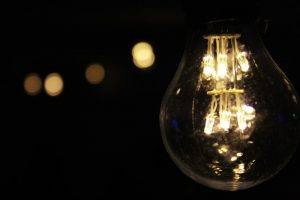Leaders, teachers, speakers, advisers, consultants, or anyone who appears in such positions, want to present themselves as knowledgeable, informed and confident. They wouldn’t be doing what they are unless they had some background or expertise, thought the information was important, and had the self-confidence to present the information to others. Although everyone tries to appear perfect, sometimes we forget that showing flaws may be the best teaching method of all.
None of us is perfect and none of the information we have is complete. Every piece of data we have learned is subject to change, increase in knowledge and modification. Human beings are inherently striving, learning, growing and changing every minute of their lives.
So, should we just give up and “wing it,” “fly by the seat of our pants,” and be sloppy in our work and in  passing on tools and education? Of course not! Everyone needs to be as thoughtful, precise, accurate and diligent as we can when we seek to support, help and inform others. Vince Lombardi once said, “Perfection is not attainable, but if we chase perfection we can catch excellence.” It is our obligation as communicators of knowledge and skills to take pride in our work and teaching as we pursue excellence.
passing on tools and education? Of course not! Everyone needs to be as thoughtful, precise, accurate and diligent as we can when we seek to support, help and inform others. Vince Lombardi once said, “Perfection is not attainable, but if we chase perfection we can catch excellence.” It is our obligation as communicators of knowledge and skills to take pride in our work and teaching as we pursue excellence.
Having said that, many of us were taught that we had to be perfect. If we failed in any respect, it meant that we were unlovable, incapable, or inadequate. Mistakes were unacceptable and unforgivable. This places a terrible burden on a child to achieve the unattainable and tells them that what they do is more important than who they are. This lesson is often reinforced in school, at the workplace and even in relationships. “A person who never made a mistake never tried anything new.” Albert Einstein. If we never tried, the world would stagnate. Perhaps if we valued imperfection and its lessons, we could be more accepting of ourselves and others.
The Value of Imperfection
- Alternative Methods of Doing the Same Task
 Every time we succeed in a task we learn that it can be accomplished in that one particular way. When asked about his failures to invent the electric light bulb, Thomas Edison said, “I have not failed. I’ve just found 10,000 ways that won’t work.” He kept trying until he succeeded. No one told him to quit because his first 1,000 attempts didn’t work. He wasn’t a failure.
Every time we succeed in a task we learn that it can be accomplished in that one particular way. When asked about his failures to invent the electric light bulb, Thomas Edison said, “I have not failed. I’ve just found 10,000 ways that won’t work.” He kept trying until he succeeded. No one told him to quit because his first 1,000 attempts didn’t work. He wasn’t a failure.
Attempting a task, solving problems and tackling difficult situations means learning, practicing and yes, sometimes failing. This doesn’t mean we are failures because we’re not perfect. “I’ve missed more than 9,000 shots in my career. I’ve lost almost 300 games. 26 times I’ve been trusted to take the game winning shot and missed. I’ve failed over and over and over again in my life. And that is why I succeed,” noted Michael Jordan. Perfection isn’t the goal. Perseverance in the face of adversity is.
When we explore how we do things (build something, solve a problem, look at a concept), we open up to ideas on how we could have done it better, quicker, more efficiently. If someone hadn’t carved that first wheel, we would still be walking everywhere. And if someone else hadn’t conceived of a hub and spokes for the wheel, we wouldn’t have gears and machinery. One idea stimulates others so long as continuing development is encouraged. “Even a mistake may turn out to be the one thing necessary to a worthwhile achievement.” Henry Ford. Rote learning will not take us very far past elementary principles in any area of learning.
- Keeping Open to New Possibilities
When we open up a topic and ourselves for exploration and proclaim we don’t have all the answers, then we expose the question to new, unexplored, unexpected developments.
Physics was thought to be a dead-end science at the beginning of the twentieth century. Newtonian physics and its mathematics had been extensively explored and the scientific community thought they knew everything there was to know about physics until a young patent clerk came up with some outlandish ideas on relativity. Einstein, not being a university professor, was ridiculed for challenging the status quo. His ideas opened up the whole arena of quantum theory and revolutionized the field of physics and science in general. Even his ideas on relativity have been challenged. Discussion and exploration is the way we learn and grow in our thinking.
If you have a passion, follow it. If you have an idea, pursue it. If you have a skill, practice it. If you have a talent, use it. Perfection is not necessary or perhaps even desirable. Dreaming is. Vincent Van Gogh stated, “If you hear a voice within you say “you cannot paint,” then by all means paint and that voice will be silenced.”
- Showing our Vulnerabilities
When we declare ourselves The Expert, the leader, the one who holds the key to knowing the TRUTH, it leaves the rest of the world in the position of student, follower, disciple, child and passive recipient of our benevolence. This positioning creates a mental and emotional gap between the speaker (whether teacher, speaker, leader, advisor etc.) and the audience. Certainly, some are more knowledgeable than others and we want them to impart this information. The issue becomes a problem when no one can question or challenge the data or position of the expert.
When we acknowledge that what we know, do and understand is simply the information we have at the moment based on our background, education, experience and intelligence, we demonstrate this isn’t the complete picture. We can open up to new ideas even from children, students, participants and followers, a whole new world can advance. The most powerful statement a person in authority can make is: “I don’t know.” This allows for the possibility of new information, change and additional ideas from other sources.
The other powerful statement authority figures can make is: “I am sorry.” Admitting a mistake, particularly to the one you may have hurt or embarrassed, is enormously beneficial to younger people, children, students and those who are learning from you. I think I was probably in my 30s before I heard an adult apologize to a younger person for a mistake. It is not hard. It takes courage, but it gets easier to admit our faults as we gain confidence that the world won’t end if we’re not perfect. If you can show your vulnerability to another, you set an example for others to admit their mistakes, errors and failing and this allows them to change their thinking or to receive help.
Showing true remorse, when your mistake has hurt another, is a mature virtue in this world of saving face. Being authentic means being true and vulnerable, even if it doesn’t always mean we show up in the best light. We are human. We make mistakes. If we acknowledge them to others, it makes it less likely that we will make the same error again. This opens up the field for others to admit their failings. We are all in this together. We can make the world a better place with cooperation if we don’t try to ignore our imperfections.
Perfection is not a virtue
Perfection is not a natural state of being for humans, animals or even nature. We are designed to be in a state of flux. This is the way we evolve to a higher state of being, learning and developing. If this were not the case, we would all have been born perfect.
So, stop beating yourself up for not achieving that state of perfection. Strive for being the best with the talent, gifts, intelligence, heart and love you have. It is enough. You are enough. God doesn’t make mistakes. You are perfect in your imperfection.
Blessings,
Ariann
